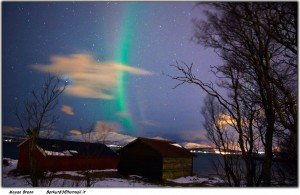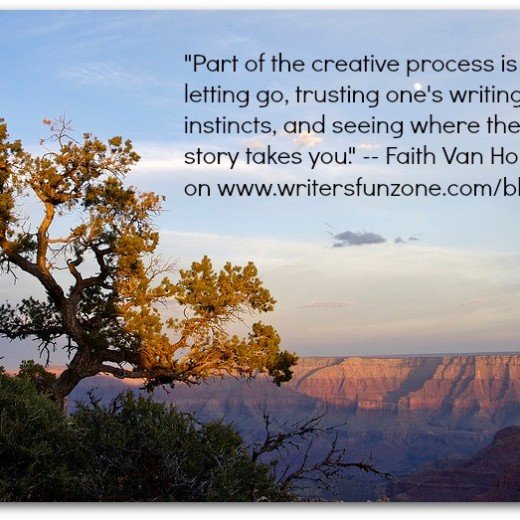Trippy Trips: A Game of Keeping Your Readers Fed by Wyatt Bessing
 Welcome back to another one of Writer’s Fun Zone’s awesone monthly columnists: Wyatt Bessing. A writing coach and teacher, and author, Wyatt shares his fun take on games, play, and how they help our writing. Enjoy this month’s post on how to keep your readers enthralled with the observations and emotions you recorded when you travel. And please comment below on your trip and share your own experience.
Welcome back to another one of Writer’s Fun Zone’s awesone monthly columnists: Wyatt Bessing. A writing coach and teacher, and author, Wyatt shares his fun take on games, play, and how they help our writing. Enjoy this month’s post on how to keep your readers enthralled with the observations and emotions you recorded when you travel. And please comment below on your trip and share your own experience.
***
How often have you journeyed off to some exotic destination and brought along your notebook, expecting to record your observations in prose so eloquent and poetic that it would forever change the perceptions and very lives of your readers? Or you at least assumed that the wonder you felt would marginally translate itself to the page, all that majesty entering your words through osmosis?
Unfortunately, if you’re like me, you quickly learned that the reverse is often true: your writing feels inadequate, even paltry, in comparison to those moving moments you observed. If so, don’t despair. It’s only natural.
After all, you’re on vacation, on a natural high, all your senses firing with anticipation. Do the locals at that quaint fishing village feel full of wonder every day? Do their words soar with eloquence? No. It’s the delusion of the traveler making everything seem exotic. Thinking a vacation will magically fill your writing with philosophical and aesthetic insight is like assuming that you can write better while drunk. You can’t.
However, it’s possible to use a vacation to awaken the details and insight of your writing. In this game, I’ll show you how to keep your readers enthralled with the observations and emotions you’ve recorded during your travels: Flash, Emotion, and Digging (FED).
Paradoxically, distance is key to all of these elements. Insight is achieved by looking inward after looking out, using the raw emotion and memory of the trip and forging them with your individual fire. Get as close to those marvels as possible. Touch the water, smell the tree, and listen to the waves. But then go into your cabin or car to write, and save most of your writing until you get home from the trip.
Writing my first views of a beautiful scene, I’m likely to rely on trite or cliché details. But I want all my writing to sing its own song. If you’re writing of how sky and waves merged on the horizon, and it sounds like you’ve heard it before… you probably have! So don’t write it! Find something else to say.
Flash
Standing on the sand at Stinson Beach last weekend, looking at the waves and water, noting the sunlight making a golden bowl in the water’s center as molten sparkles danced around it. A nice image, I thought, but not wholly original.
Just then, a colleague of mine asked another, “Have you ever seen the green flash?” I eavesdropped as he described how, at certain angles, as the sun sets far out across the sea, you will see a green flash light the sky as the sunbeams shine through the water.
The flash of writing is like a flash of lightning, never hitting exactly the same place twice, “breaking through structure” as Natalie Goldberg says. It opens new perspectives. Then I was able to see the twisting corkscrew pink shells that someone had dragged up from the beach where they belonged and placed on the stump between the chairs. Finally, I noticed how – looking out from certain curves of the beach – the sea eclipsed all my vision and the earth utterly disappeared.
Collecting these observations, I have the start of a poem or a story.
Green flash/ pink corkscrew shell/ losing the land beneath my feet.
Emotion
But without personal connection, all this beautiful scenery means nothing. To create interest, a writer must tie observation to emotion. The reader wants to feel how the character feels, how the character reacts to the sights. This part may take some reflection and will be better written after vacation. Reflecting now, I recall the vertigo I felt as the land disappeared and the ocean filled my view, a vertigo I often feel as I plunge into writing, wanting to take risks and lose myself in the wonder and flying. I also remember the pride I felt at the crackling fire I had made that morning on the beach, the deep red and purple flames licking glowing embers and warming everyone.
Pain and discomfort are powerful emotions; readers will sympathize with characters in anguish, as I was when I spoke with an innkeeper about how computers – far from creating better communication and cooperation – have actually created more competition, silence, and fear as inns manipulate prices and reservations through the online system instead of calling each other to coordinate vacancies as they once did.
Save these emotions: Vertigo/ Pride/ Disgust.
Digging
The final element, Digging, is the excavation of history as I make contextual and human connections. Listen closely to the locals, observe nature minutely. On the beach, I see the frothy waves trembling and writhing as they carve out fingers along the cliffs, carving geological history. I see people changing the terrain, dragging shells from the beach to adorn stumps, and human shadows stretching like ghosts across the sand. In the redwoods, those hollows in the trees in which one may stand are called goosepens, a term originating from pioneer times, when settlers would enclose geese within the trees.
I’ve uncovered Erosion/ Adaptation/ Parasitism.
After gathering at least three notes for each area of FED (Flash, Emotion, and Digging), combine them to create some exciting juxtapositions. For me this is the thrill of writing: turning observation and emotion into art. Randomly a word from each category, I have Flash/Vertigo/Erosion, a fertile juxtaposition far more poetic than any of the more forced combinations above.
This one is wonderful for my new novel-in-progress 10 Dreams, which opens with a man living on the beach.
He hunts that green flash, lives for it, and when he finally finds it, after all his focused effort, he surrenders to the water, throwing himself from the rocks over the sea, hitting the water as the last sunlight fades, his toes brushing away bits of earth and sand, eroding the cliff beneath him.
***
About the Author
 Wyatt Bessing is a writer, writing coach, and learning specialist. His stories and essays have appeared in Bedtime-Story.com, Outsider Ink, national educational assessment materials, and in the anthology Dance, Human Rights, and Social Justice. Through his workshops, website, and blog at wyattgbessing.com, he guides new and experienced writers in crafting more effective, expressive, and striking work. During the day, he works at Star Academy in San Rafael, teaching reading and comprehension skills to students with learning differences in elementary through high school. He lives in Santa Rosa, CA with his wonderful girlfriend and co-creator, Sarah Laugtug.
Wyatt Bessing is a writer, writing coach, and learning specialist. His stories and essays have appeared in Bedtime-Story.com, Outsider Ink, national educational assessment materials, and in the anthology Dance, Human Rights, and Social Justice. Through his workshops, website, and blog at wyattgbessing.com, he guides new and experienced writers in crafting more effective, expressive, and striking work. During the day, he works at Star Academy in San Rafael, teaching reading and comprehension skills to students with learning differences in elementary through high school. He lives in Santa Rosa, CA with his wonderful girlfriend and co-creator, Sarah Laugtug.







What do you all think of these tips? Have you ever felt overwhelmed by the beauty of a natural place, and, as a writer, as if your own thoughts can’t quite compare to the grandeur of the natural world?